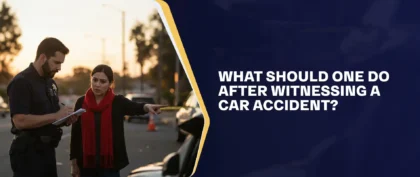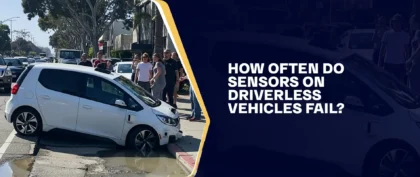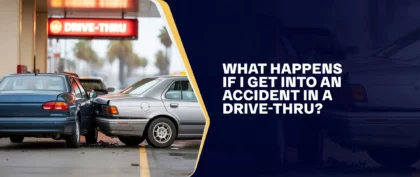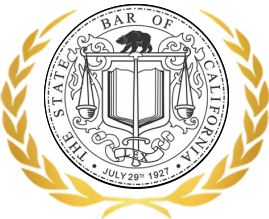Table of Contents
Car accidents are stressful, frustrating, and confusing. In addition to dealing with injuries and insurance concerns, damaged vehicles add another layer of worry. After all, car downtime can significantly disrupt daily routines, like commuting to work, running errands, or traveling for leisure. Since Californians rely heavily on their vehicles, knowing when to get your car back on the road after an accident is a top priority.
Unfortunately, there isn’t a specific law in California that dictates the exact number of days a standalone body shop can keep your car for repair. However, the Bureau of Automotive Repair (BAR) has regulations to ensure that repair shops operate fairly and transparently.
How Long Can An Auto Body Shop Keep Your Car For Repairs?
The time an auto body repair shop can hold your car while it’s being fixed depends on the damage, part availability, and shop workload. Repairs will take longer to complete if there is significant damage to the vehicle. The same goes for when the parts are not readily available. Furthermore, if the body shop is dealing with multiple repair jobs, you might have to wait a little longer for your turn.
What You Need To Know About Estimated Repair Time
Mechanics typically have no intention of deliberately extending repair times to retain your vehicle. However, establishing clear timeframes is a proactive measure to prevent unnecessary delays. Having a documented record of the estimated time and cost beforehand ensures that the mechanic sticks to their commitment.
Minor Repairs Should Not Take More Than A Day
Minor repairs and fixes typically should be completed within a few hours. The body shop might advise you to wait or return later in the day. This shouldn’t be a cause for concern, especially if you have a scheduled appointment.
Special Parts And Major Issues Take Longer To Repair
If the car accident caused major damage, repairs will naturally take longer than minor fixes. This is particularly true for unique or vintage models, where specific parts may need to be ordered.
Before the repairs start, ask your mechanic how long it will take. Doing so can help you manage your expectations and plan accordingly. Clear communication will make them more likely to adhere to the agreed-upon schedule and avoid delays as much as possible.
Unforeseen Issues Can Increase A Mechanic’s Time
It’s important to acknowledge that repairs don’t always unfold as smoothly as we hope. While mechanics and customers strive for reasonably accurate timeframes, unforeseen factors can disrupt the original plan.
These circumstances may include unexpected issues with the vehicle, such as more extensive underlying damage or a deteriorated part that needs immediate replacement. Unanticipated factors may also refer to the mechanic facing personal challenges, such as illness or family emergencies. Matters like these may temporarily take them out of action and render them unable to work on repairing your vehicle.
To ensure your peace of mind, communicate with your mechanic regularly. Ask them to inform you about any new developments in the repair process so you can adjust accordingly.
Why Do Car Owners Usually Have This Concern?
After a car accident, it’s normal to wonder whether it’s worth repairing the car if it’s damaged. When it comes to car repairs in California, many drivers may wonder how long a body shop can legally hold their vehicle. This concern is not only about the inconvenience of being without your vehicle but also about understanding your rights as a car owner and insurance policyholder. It’s natural to have concerns about the repair process, which can require several days or more. Worries about potential delays or misinformation from the repair shop can also arise.
Understanding the relevant regulations can alleviate your concerns. Collaborate with your insurance company and adhere to state laws to make the repair process smoother and secure reimbursement for associated costs. Legal avenues are also available to address your concerns if there are unwarranted delays in the repair process of your vehicle.
California Motorists Bill Of Rights
When you decide to keep your car after an accident, navigating the process of repairing it for damages can be confusing. Thankfully, California law offers consumer protections through a set of regulations known as the Automotive Repair Act.
Below are some key points you should know as a customer:
- You have the right to select the auto body repair shop that best suits your needs. This flexibility allows you to find a reputable business you trust, unlike some insurance policies that might restrict your options.
- While you have the freedom to choose a repair shop for your car, it’s important to keep your insurance company informed. Most policies require filing a claim, submitting proof of loss, and allowing them to inspect the damage.
- Don’t feel pressured to get quotes from multiple shops. California law mandates that your chosen repair facility provide a written estimate upfront, ensuring transparency before any work begins.
- As the car owner, you are generally responsible for upfront repair costs. However, your insurance policy might cover a portion of the expense minus any deductibles or depreciation. It is advisable to review your policy details beforehand.
- All registered repair facilities in California must comply with specific guidelines established by the Automotive Repair Act. These include displaying a state-issued license, providing accurate information, outlining repairs on work orders, offering copies of signed documents, and upholding industry standards. If a shop fails to comply, it risks losing its license.
Understanding Your Rights As A Vehicle Owner

The Automotive Repair Act provides you with certain protections, ensuring a fair and transparent experience:
- Estimate Requirement — After checking your car for damage, the auto shop must provide you with an estimate outlining the expected costs for both parts and labor. The shop must also obtain your authorization before proceeding with the work.
- Invoice Upon Completion — Once all the repairs are finished, the auto shop must provide you with an invoice detailing the final parts and labor charges. After getting your car back from the shop, you should cross-check the repairs with the invoice.
- Request for Replaced Parts — You have the right to ask for the parts that were replaced in your vehicle to be returned to you. It’s a good practice to request this before authorizing the repair estimate.
When facing car repairs after an accident or merely for regular maintenance, you must know your rights as a vehicle owner. The best way to do this is to review your automobile service contracts, extended warranties, and other repair agreements.
Different Types Of Car Repair Shops
Car repair shops come in three main categories, each with its own set of advantages and disadvantages:
Car Dealerships
Dealership mechanics are well-versed in the specifics of your vehicle’s make and model. They often receive specialized training. However, dealership repairs can be expensive. Because of this, many car owners opt for dealerships primarily for warranty-related work.
General Repair Shops
These shops typically charge more for parts than dealerships. The good thing is that they tend to offer more affordable labor rates. The challenge lies in finding a trustworthy and skilled mechanic at a general repair shop.
Auto Repair Chains
Auto repair chains specialize in specific services, such as oil changes, muffler work, or brake repairs. Some chains offer a wide range of services, which are more convenient for multiple repairs. Due to their high volume of customers, they can often provide competitive prices. Compared to other repair shops, these chains are particularly suitable for specific routine maintenance tasks.
Should You Use Your Insurer’s Recommended Repair Shops After A Car Accident?
After filing a claim with your insurer, they may recommend auto body shops that meet their network standards. However, you’re not required to use an insurer-recommended shop. Legally, you can choose your own autobody repair shop.
Here’s a list of the pros and cons of using your insurance provider’s recommended repair shops:
Pros
- Convenience — The insurance company may handle all communication and paperwork with the shop, streamlining the process for you.
- Faster Repairs — Insurer-recommended shops often have a pre-existing working relationship with the insurance company, which can expedite estimate approvals and repairs.
- Warranty — Some recommended shops might offer lifetime warranties on repairs, potentially covered by the insurer.
Cons
- Lower Quality Repairs — Insurers might recommend shops willing to work at lower costs, which could compromise the quality of repairs or parts used.
- Limited Choice — You give up control over choosing a shop you trust or one known for high-quality work.
What To Do If You Think A Mechanic Is Taking Too Long
If you begin to suspect that your car is being kept in the auto shop for an unreasonably long time, you have a few options to consider. One option is to consult another auto shop for a second opinion. Alternatively, if you know someone with expertise in automotive repair, their insights can also be valuable.

Here’s a step-by-step guide on what to do:
- Gather All Repair Information — Collect all documentation of your repairs, including estimates, invoices, and any communication with the current mechanic.
- Seek a Second Opinion — Take this information to another professional in the field, such as another auto shop or a knowledgeable friend. They can offer a fresh perspective on the situation.
- Assess Reasonable Timelines — While conditions vary between garages, there’s usually a noticeable distinction between a reasonable repair timeframe and a situation where things have gone significantly off track.
Taking these steps guarantees that your car is handled appropriately and any delays are justified. Should you have any reason to believe your mechanic is experiencing undue delays in repairing your vehicle, seek legal counsel immediately.
Exploring Legal Options For Excessive Delay In Auto Repairs
In some cases, legal action may be warranted. Consider taking legal action against a mechanic if, for instance, you have provided a down payment and they still failed to start fixing your vehicle or the repair was made beyond the reasonable period. You may even have a case if their negligence has worsened your car’s condition.
However, it’s important to be realistic, particularly when the necessary repairs require an extended timeframe, such as when rare parts need to be ordered for your vehicle.
Here are some critical things to consider:
- Exhaust Other Options First — Before pursuing legal action, explore all other avenues of resolution. Legal proceedings should be your last resort.
- Consider The Complexity — Understand that engaging in a legal dispute can be lengthy, intricate, time-consuming, and potentially involve substantial expenses.
- Explore Alternative Solutions — Resolving matters outside the courtroom through negotiation or mediation often proves more practical and cost-effective.
Establish Your Claim
Before considering legal action, you must assemble compelling evidence to support your case and increase your chances of a favorable outcome. For instance, if your mechanic takes unreasonably long to repair your car, you’ll need concrete proof to substantiate your complaint.
Here’s how to go about it:
- Document The Duration — Start by maintaining documentation that records your vehicle’s length of stay at the shop. This record forms the foundation of your complaint and helps establish the timeline of events.
- Research Legal Timeframes — Ensure you understand the legal guidelines regarding how long a mechanic can work on your car. Being familiar with these regulations can provide valuable context for your case.
- Know The Expected Service Time — Gather information about the average duration that the specific services you requested should take. You can accomplish this by visiting other reputable auto repair shops and comparing their estimated timelines to the ones you’ve experienced.
- Scrutinize Delay Causes — If the mechanic cites valid reasons for the delay, such as waiting for a specific spare part, thoroughly examine these explanations for accuracy and legitimacy. Find out how challenging it truly is to procure the item in question.
By diligently collecting this evidence, you will build a strong foundation for your case and ensure that you’re well-prepared to address the situation effectively.
Let The Shop Know Your Intention
A formal notice of your intent to take legal action can sometimes be all it takes to get a mechanic to pay attention to your complaint. As mentioned earlier, going to court can be costly, making it something any business would rather avoid. Working with a personal injury lawyer shows the seriousness of your intent and could urge them to seek a more amicable solution.
The Mechanic’s Lien
 A mechanic’s lien in California is a legal claim or hold against property, such as a remodeled, improved, or repaired vehicle. Contractors, subcontractors, and suppliers generally use this lien to ensure payment for services rendered or materials provided.
A mechanic’s lien in California is a legal claim or hold against property, such as a remodeled, improved, or repaired vehicle. Contractors, subcontractors, and suppliers generally use this lien to ensure payment for services rendered or materials provided.
If the property owner does not pay for the work or materials, the person or company that performed the work or supplied the materials can file a Mechanic’s Lien to secure their right to payment. Once the lien is filed, it becomes a charge on the property, making it difficult for the owner to repossess, sell, refinance, or transfer ownership without resolving the lien.
To enforce a mechanic’s lien, the claimant may initiate foreclosure proceedings, which could lead to the sale of the property to satisfy the debt.
Frequently Asked Questions (FAQs)
How Do I Deal With Unsatisfactory Car Repairs?
If your car is in the shop and you’re not getting satisfactory answers or clear timelines, contact your car insurance provider. They can assist in moving your car to a different, more reliable service location if needed. Often, repair delays are due to waiting for specific parts. You can expedite this by sourcing the parts yourself and possibly get reimbursed by your insurance company.
Keep in mind that estimated repair times are often inaccurate, especially for significant damage, so it’s wise to add a few extra days to the given timeframe. Remember, car repairs are rarely quick and usually take longer than expected.
What Is The Typical Repair Timeframe?
When getting your car serviced, communicate your time expectations with the dealership. For instance, inform them upfront if you need the repairs done in a few hours. If they can’t meet this timeframe, it’s important to let them know and provide notice. Make sure you discuss the consequences in advance if they exceed your specified limit.
Can I Take Legal Action If My Mechanic Keeps My Car Longer Than 30 Days?
If a repair shop holds onto your vehicle for an unusually long time without providing a reason, you may need to consider legal options. Typically, vehicle repairs are completed within 12 days, so any delay beyond that warrants questioning. If your car is still in the repair shop, auto body shop, or dealership, you might have grounds for legal action to seek compensation for any substandard services. Before pursuing this, ensure you have all the necessary documentation, including your vehicle’s records, repair history, and sales contract.
Need Help With Your Car Repair After An Accident? Call Arash Law Today!
Arash Law, led by Arash Khorsandi, Esq., practices various areas of personal injury law, including handling challenging cases on California’s roads. We understand that dealing with car repairs after an accident can be frustrating and time-consuming. That’s why we allow you to focus on your recovery while we skillfully navigate the legal intricacies on your behalf.
With decades of unparalleled expertise, we stand by your side in resolving post-accident issues and determining the appropriate legal action. Our remarkable track record of recovering over $750 Million in client compensation is a testament to our legal prowess. We can help you identify who should be responsible for paying for your car repair, among other things. Whether speaking to insurance companies or ensuring timely repairs, our car accident claim lawyers are here to help you with the process and get you back on the road as soon as possible.
We proudly extend our services to numerous locations across California, including Los Angeles, Sacramento, San Francisco, Riverside, Orange County, San Jose, San Diego, Anaheim, Bakersfield, Frazier Park, Fremont, Fresno, Glendale, Gustine, Oceanside, Santa Ana, San Bernardino, San Luis Obispo, Santa Rosa, Tehachapi, and Visalia. Our dedicated team of personal injury lawyers is available to serve you around the clock, ensuring we are there when you need us.
Take the first step toward a resolution. Call us at (888) 488-1391 today or complete our form for a complimentary case evaluation. Your journey to justice begins with us!
Share this:
- Click to share on Facebook (Opens in new window) Facebook
- Click to share on X (Opens in new window) X
- Click to share on LinkedIn (Opens in new window) LinkedIn
- Click to share on Reddit (Opens in new window) Reddit
- Click to share on Pinterest (Opens in new window) Pinterest
- Click to share on Threads (Opens in new window) Threads
- Click to share on WhatsApp (Opens in new window) WhatsApp







































